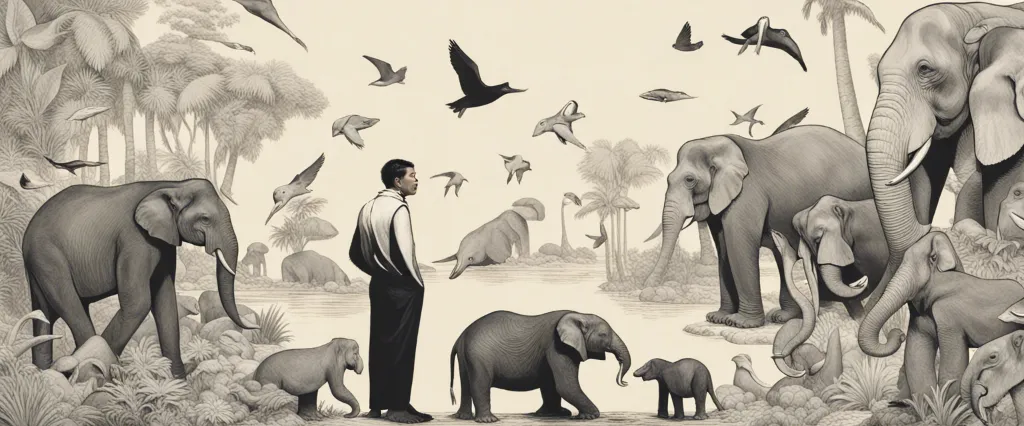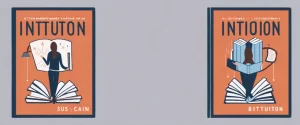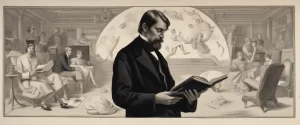——Are We Smart Enough to Know How Smart Animals Are by Frans de Waal & Humble Pi by Matt Parker

In today’s complex world, where discoveries and advancements abound, our understanding of the world around us is constantly evolving. Two books that delve into this intriguing realm, “Are We Smart Enough to Know How Smart Animals Are” by Frans de Waal and “Humble Pi” by Matt Parker, offer distinctive perspectives on different aspects of our intelligence and the intricate relationship between humans and the world at large.
Frans de Waal, a renowned primatologist and ethologist, invites readers on a thought-provoking journey into the cognitive abilities of animals in “Are We Smart Enough to Know How Smart Animals Are.” Drawing upon his expansive research and a lifetime of observing our closest relatives, de Waal challenges traditional notions of intelligence and cognition, urging us to reassess the boundaries we have placed on non-human animals. Through captivating anecdotes and compelling evidence, he unveils the remarkable cognitive capacities displayed by a wide range of animals, shaking the very foundation of human exceptionalism.
On the other hand, “Humble Pi” by Matt Parker delves into a different aspect of human intelligence – our propensity for error. Parker, a renowned mathematician and stand-up comedian, embarks on an entertaining exploration of our mathematical miscalculations, computational blunders, and technological mishaps. Delving into amusing real-life examples where incorrect assumptions or flawed reasoning have led to catastrophic consequences, Parker takes us on a humbling journey that reminds us of the fallibility of human intelligence, while simultaneously highlighting the role of mathematics in our lives.
Both these books, despite addressing different themes – the intelligence of animals and human fallibility – converge in their exploration of the limitations and complexities of our understanding. As de Waal challenges the notion of human superiority over animals, Parker exposes the vulnerabilities hidden within our own intellectual prowess. Together, these works offer us a unique opportunity to reflect on the intricacies of intelligence, challenging us to reconsider our place in the world and the significance we attribute to our own cognitive abilities.
Through this comparative study, we will explore the fundamental questions raised by de Waal and Parker and delve into the implications of reevaluating the boundaries of intelligence. By examining the evidence presented in these two books, we will analyze the implications of our expanding knowledge on various dimensions of life, ranging from ethical considerations to scientific advancements. In doing so, we will seek to broaden our perspective and gain a deeper understanding of the intricate relationships that exist between humans, animals, and the world we inhabit.
Brief Summary of Two Books
Are We Smart Enough to Know How Smart Animals Are by Frans de Waal
Are We Smart Enough to Know How Smart Animals Are” by Frans de Waal is an insightful and thought-provoking book that explores the intelligence and cognitive abilities of animals. De Waal, a renowned primatologist and ethologist, challenges the traditional view of animal intelligence, arguing that our understanding of non-human creatures has been limited by our own biased perspective.
Through a series of captivating anecdotes, experiments, and scientific research, de Waal reveals the remarkable cognitive abilities of animals across various species. He demonstrates that animals are capable of problem-solving, tool use, emotions, and even exhibit elements of culture. Drawing on his vast experience with primates, de Waal presents evidence that challenges the idea of human exceptionalism, arguing that many animals possess forms of intelligence that we may not fully grasp yet.
The book also delves into the history of animal intelligence research and criticizes past methodologies that failed to acknowledge animals’ true cognitive capabilities. De Waal advocates for a more holistic approach to understanding animal intelligence, one that respects their unique characteristics and acknowledges their diverse ways of thinking and problem-solving.
While presenting a wealth of scientific evidence, the book is also highly accessible to non-experts, making it an engaging read for anyone interested in animal behavior, intelligence, and our relationship with fellow creatures. Overall, “Are We Smart Enough to Know How Smart Animals Are” challenges our preconceived notions about intelligence and invites us to consider animals’ remarkable cognitive abilities in a new light.
“Humble Pi” by Matt Parker is a humorous and enlightening book that explores the world of mathematical mishaps and the consequences of numerical errors. Parker, a renowned mathematician and comedian, takes readers on a journey through various fields where math fails and offers intriguing insights into the importance of mathematical accuracy.
From architecture and engineering to finance and government, Parker showcases real-life examples of how miscalculations, oversights, and assumptions can lead to disastrous results. Exploring historical events, he reveals the impact of mathematical errors in situations such as the infamous sinking of the Titanic or the NASA’s Mars Climate Orbiter mission failure.
Parker also delves into the peculiar world of “off by one errors,” where seemingly minor numerical mistakes can have major implications. Through entertaining anecdotes and witty explanations, he highlights the unexpected ways in which math can go wrong, with hilarious consequences.
Despite the light-hearted tone, “Humble Pi” ultimately emphasizes the significance of mathematics and its ubiquitous presence in our daily lives. Parker implores readers to embrace error and failure as integral elements of the learning process, while also fostering a deeper appreciation for the precision and reliability that math provides.
In essence, “Humble Pi” serves as a fascinating exploration of mathematical blunders, showcasing the fragility of numbers and the importance of mathematical literacy in a world where even the smallest mistakes can have significant repercussions.
Comparison between Two Books

Similarities in The Fun Encyclopedia
There are no clear similarities between “The Fun Encyclopedia” and the books “Are We Smart Enough to Know How Smart Animals Are” by Frans de Waal and “Humble Pi” by Matt Parker. “The Fun Encyclopedia” does not exist as a specific book, and without further information, it is challenging to draw any parallels between the content of these books.
Divergences in The Fun Encyclopedia
The divergence between “Are We Smart Enough to Know How Smart Animals Are” by Frans de Waal and “Humble Pi” by Matt Parker emerges when comparing their subject matter and overall themes with “The Fun Encyclopedia.”
“Are We Smart Enough to Know How Smart Animals Are” primarily explores the cognitive abilities and intelligence of animals, focusing on how human biases and misconceptions can limit our understanding of their intelligence. Frans de Waal, a renowned primatologist, presents a wealth of scientific research and anecdotes to challenge the notion that humans are the only intelligent beings. He demonstrates that many animals possess highly developed cognitive skills and social complexity, exploring topics such as animal communication, tool use, and problem-solving abilities.
On the other hand, “Humble Pi” by Matt Parker delves into the realm of mathematics and presents the concept of mathematical failures and the intriguing consequences they may have. Parker examines various mathematical mishaps, miscalculations, and unexpected outcomes, showcasing how errors and oversights have led to disastrous and sometimes humorous results. His ultimate goal is to highlight the importance of learning from our mathematical mistakes and to emphasize the significance of rigor in mathematical thinking.
Contrastingly, “The Fun Encyclopedia” differs from the aforementioned books in terms of its subject matter and overall purpose. While both de Waal and Parker discuss topics within the non-fiction genre, “The Fun Encyclopedia” seems to lean towards a more light-hearted and entertaining approach. It can be inferred that this encyclopedia aims to be an enjoyable read, presenting a wide range of fascinating and amusing topics to engage and captivate readers.
Although all three books may contribute to the expansion of knowledge in their respective areas, “The Fun Encyclopedia” diverges from the others by focusing on entertaining readers rather than exploring specific scientific concepts or mathematical principles. This divergence implies that while the former two books aim to inform and challenge existing knowledge, “The Fun Encyclopedia” leans more towards providing leisurely amusement to its readers.

Conclusion
“Are We Smart Enough to Know How Smart Animals Are?” by Frans de Waal delves into the cognitive abilities and emotions of animals, challenging long-held assumptions about their intelligence. De Waal explores a wide range of fascinating animal behaviors and shares scientific research that demonstrates their remarkable intelligence.
On the other hand, “Humble Pi” by Matt Parker focuses on the world of mathematics and highlights the humorous and often faulty side of the subject. Parker explores mathematical mistakes, blunders, and human errors in various fields, showing how even the brightest minds can make simple mathematical miscalculations.
If you have an interest in animal cognition, behavior, and cross-species intelligence, “Are We Smart Enough to Know How Smart Animals Are?” would be an excellent choice. However, if you prefer a more light-hearted and entertaining take on mathematics, “Humble Pi” might be more appealing.
Ultimately, it is recommended to read reviews, summaries, and sample chapters of each book to determine which aligns best with your interests and reading preferences.


